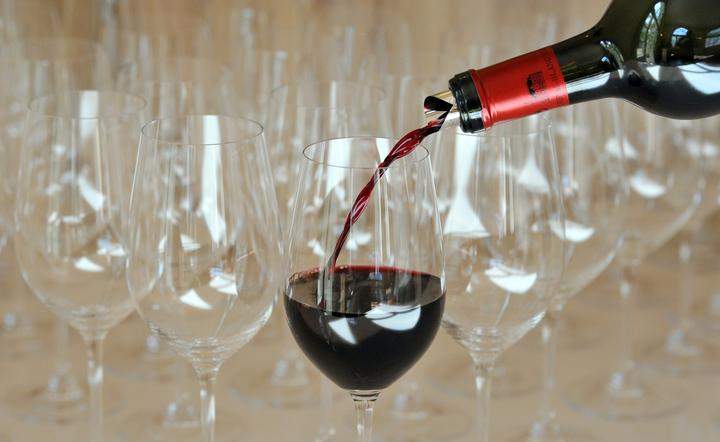Scientists have good news for those who like the finer things in life: a daily dose of chocolate aids in staving off heart disease while an ingredient in grapes and red wine helps with burning calories, two new studies suggest.

Antioxidants called polyphenols – a compound found in cocoa beans, berries, grapes and other fruit – may be what’s helping to boost health.
In the first study, researchers say that chocoholics who graze on a few squares of the sweet stuff decrease their risk of heart disease and stroke. Their findings are based on studying the health outcomes of 25,000 British men and women who took part in the EPIC-Norfolk study. The 12-year-long study monitored the group’s eating habits and cardiovascular health – during that time, 14 per cent of people had a fatal or non-fatal heart attack or stroke.
READ MORE: Why dark chocolate is good for our gut, heart and taste buds
About one-in-five people said they didn’t eat any chocolate, while the rest of the participants conceded that they ate between seven grams and 100 grams per day.
But it was the group who ate chocolate that seemed to have a lower body mass index, hip and waist ratio, and blood pressure levels. They exercised more and had fewer inflammatory proteins, too.
On a whole, the chocolate-eaters had an 11 per cent lower risk of heart disease and a 25 per cent lower risk of death tied to the disease.
READ MORE: Big study will test chocolate extract pills for heart health
- Buzz kill? Gen Z less interested in coffee than older Canadians, survey shows
- ‘She gets to be 10’: Ontario child’s heart donated to girl the same age
- Canada updating sperm donor screening criteria for men who have sex with men
- Bird flu risk to humans an ‘enormous concern,’ WHO says. Here’s what to know
“The highest chocolate intake was similarly associated with a 23 per cent lower risk of stroke, even after taking account of other potential risk factors,” the study authors said in a press release.
But they reminded readers: the study they based their research on had participants filling out food questionnaires – “recall bias and underestimation” could have altered their findings.
There’s been plenty of research surfacing about the benefits of dark chocolate. Scientists have pointed to the food as a helper in lowering blood pressure, managing cholesterol levels and improving heart health. Unlike milk chocolate that’s mostly built with sugar and milk, dark chocolate is packed with antioxidants and flavonoids, which fight damage to your body’s cells.
READ MORE: Does eating chocolate cut risk of stroke?
But the new study noted that the volunteers were eating milk chocolate, too.

“This may indicate that not only flavonoids, but also other compounds, possibly related to milk constituents, such as calcium and fatty acids, may provide an explanation for the observed association,” they suggest.
Resveratrol, a polyphenol found in grapes and red wine, is what scientists zeroed in on in a Washington State University study.
This time around, they suggest that the compound helps with converting excess white fat into calorie-burning beige fat. Their theory stems from working with mice who were put on a high-fat diet – those who had resveratrol worked into their meals gained 40 per cent less weight than the control group of rodents.
READ MORE: Are dark chocolate and red wine not healthy after all?
“Polyphenols in fruit, including resveratrol, increase gene expression that enhances the oxidation of dietary fats so the body won’t be overloaded,” Dr. Min Du said in a university statement.
“They convert white fat into beige fat that burns lipids off as heat – helping to keep the body in balance and prevent obesity and metabolic dysfunction,” he explained.
Resveratrol is in all fruits, including blueberries, strawberries, raspberries, grapes and apples. Wines like merlot and cabernet sauvignon have the compound but only in small doses.
READ MORE: Booze before bedtime disrupts restful sleep, scientists suggest
“Many of the beneficial polyphenols are insoluble and get filtered out during the wine production process,” Du said.
carmen.chai@globalnews.ca
Follow @Carmen_Chai




Comments